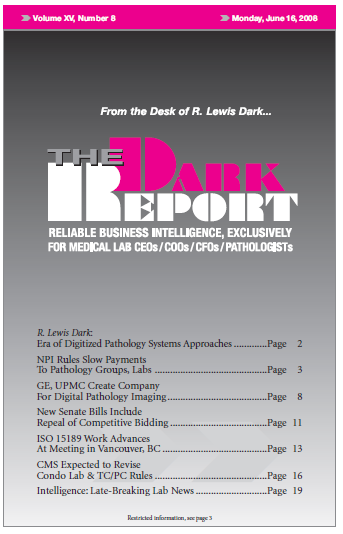CEO SUMMARY: One proposed Senate bill would repeal the laboratory competitive bidding demonstration project, replace the 10.1% cut to physician fees with a 1.1% increase, and extend the so-called technical component (TC) grandfather clause. Senator Max Baucus (D-Montana), Chairman of the Senate Finance Committee, is sponsor of the bill (called S 3101). Congress is under …
New Senate Bills Include Repeal of Competitive Bid Read More »
To access this post, you must purchase The Dark Report.


